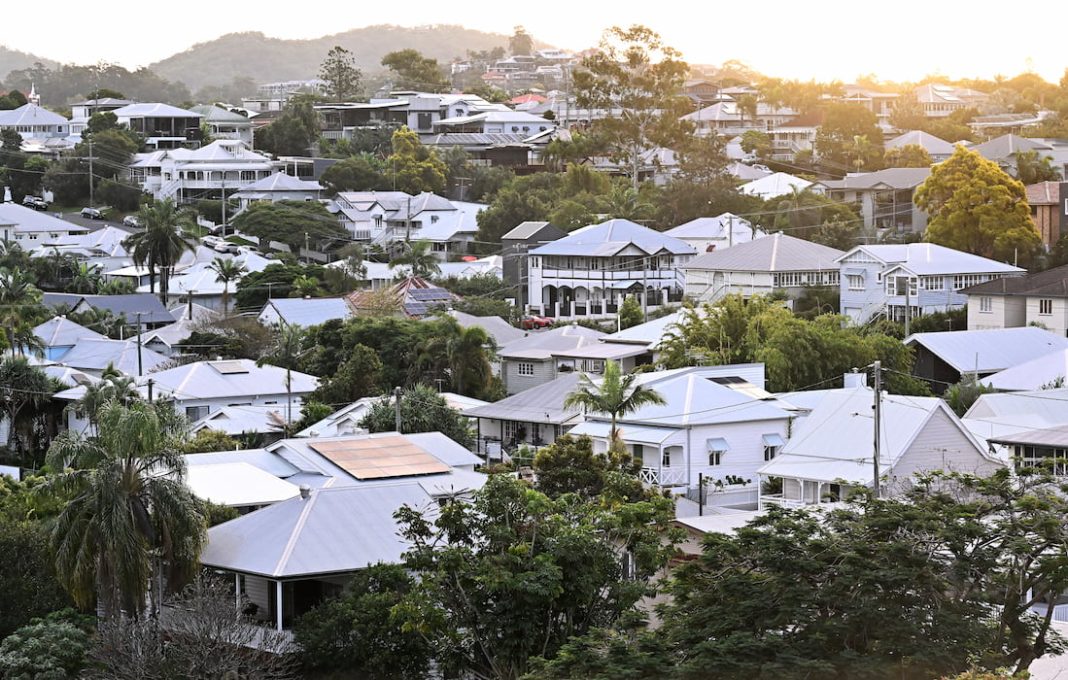Brisbane is now the second-most expensive capital city in Australia behind Sydney for home values, data from CoreLogic shows.
It is the first time since 1997 that Brisbane has had the second-highest median dwelling value in the country after overtaking Canberra in May.
That follows sustained growth earlier in 2024 when the Queensland capital had overtook median Melbourne house prices in January, for the first time since June 2008.
Brisbane’s median house value is currently $937,479 which is $190 above Melbourne.
The value of units in Brisbane is also higher at $615,429 compared to $614,299 in Victoria’s capital.
The value of Brisbane dwellings has increased at more than five times the pace of Melbourne values since the pandemic began with 59.8 per cent compared to 11.2 per cent respectively.
Brisbane has also significantly outpaced growth in the ACT where values are up 31.8 per cent since March 2020.
Tim Lawless from CoreLogic said extremely low levels of available supply across strong markets explains the difference in growth rates.
“The number of properties available for sale in Perth and Adelaide remain more than 40 per cent below the five-year average for this time of the year while Brisbane listings are 34 per cent below average,” he said.
“Fresh listings are being absorbed rapidly by market demand, keeping stock levels low and upwards pressure on prices.”
Below are some key results for ACT:
- CoreLogic’s national Home Value Index rose 0.8% in May, the largest monthly gain since October last year.
- Canberra’s dwelling value rose 0.5% in May, the fifth strongest capital city market behind Perth (2.0%), Adelaide (1.8%), Brisbane (1.4%) and Sydney (0.6%).
- Canberra’s median dwelling value is now the third-most expensive among the capital cities, falling from second after Brisbane overtook it in May.
The state government is attempting to combat supply issues by locking in a further $2.8 billion in the 2024-2025 budget towards the Home for Queenslanders plan, which seeks to build one million homes by 2046.
Premier Steven Miles on Monday announced the construction of up to 600 modular homes as part of the plan.
Mr Miles said the modular homes will be built in partnership with the private sector and be underway by the end of 2024.
The modular homes are expected to be rolled out predominantly to remote and regional locations such as Bundaberg, Innisfail, Mackay, and Warwick, along with others, he said.
“I know that to build the homes Queensland needs, we need to do things differently, which is why QBuild and businesses across the state will be enlisted to rollout more modular homes.”
But despite renewed and record investment in housing, Queenslanders remain at the “brutal edge” of Australia’s housing constraints, the Queensland Council for Social Services (QCOSS) said.
A report by QCOSS tabled on Monday shows rents in the Queensland are rising faster than anywhere else in Australia.
The report estimates about 150,000 households in the state are still unable to access affordable housing with vulnerable families stuck in crisis motel rooms.
It also found that only 10 per cent of private rentals are affordable for low-income households.
While QCOSS acknowledges the housing plan will generate significant downward pressure on supply in the coming years, renters continue to feel the brunt.
“The Breaking Ground report confirms that, despite a nation-leading housing plan announced by the Miles Government in February, renters across Queensland have been overlooked and many are on the brink of homelessness,” CEO Aimee McVeigh said.
“To make a real difference for renters, both the Queensland Government and state opposition need to commit to putting a cap on the cost of renting and end unfair evictions.”



